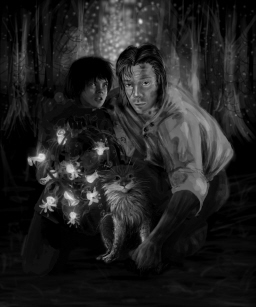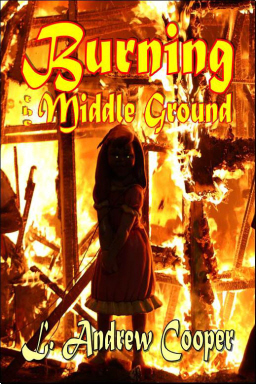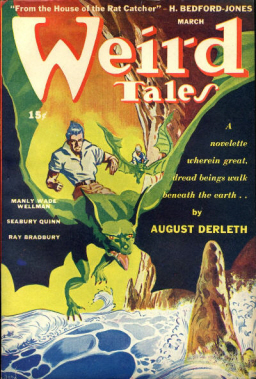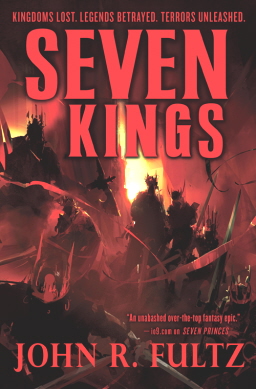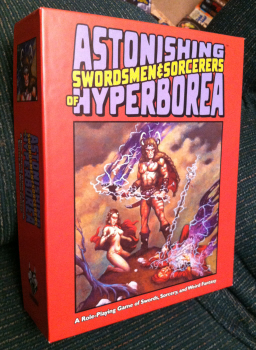The House of Ideas that Jack (and Steve) Built: Sean Howe’s Marvel Comics: The Untold Story
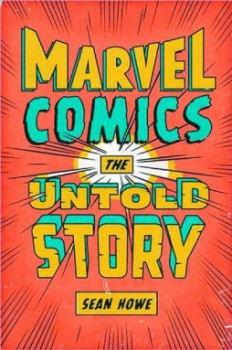 Early on in Sean Howe’s book-length history Marvel Comics: The Untold Story, the reader’s imagination is spurred by a throwaway anecdote: in 1937, New York magazine publisher Martin Goodman and his wife planned to return from a trip to Europe aboard the Hindenburg — on what would turn out to be the final tragic flight of the German dirigible, which ended with a terrifying aerial explosion and fire that led to the deaths of 36 people. Goodman, as it happened, was too late to get tickets and took a plane instead. You can’t help but wonder, though. What if he’d died then, before he’d expanded his magazine line to include comics? Before he’d hired his nephew Stanley to work in the office and do fill-in bits of writing? What if Marvel Comics, the subject of Howe’s book, had been stillborn? What would have been different in the development of comics, of popular culture, of the North American imagination? Maybe everything. Maybe nothing.
Early on in Sean Howe’s book-length history Marvel Comics: The Untold Story, the reader’s imagination is spurred by a throwaway anecdote: in 1937, New York magazine publisher Martin Goodman and his wife planned to return from a trip to Europe aboard the Hindenburg — on what would turn out to be the final tragic flight of the German dirigible, which ended with a terrifying aerial explosion and fire that led to the deaths of 36 people. Goodman, as it happened, was too late to get tickets and took a plane instead. You can’t help but wonder, though. What if he’d died then, before he’d expanded his magazine line to include comics? Before he’d hired his nephew Stanley to work in the office and do fill-in bits of writing? What if Marvel Comics, the subject of Howe’s book, had been stillborn? What would have been different in the development of comics, of popular culture, of the North American imagination? Maybe everything. Maybe nothing.
Maybe nothing, because Goodman was not himself involved in any significant way in the creation of the books. The best days for his company came when he let his nephew, by then working under the pseudonym Stan Lee, edit the comics with a free hand — aside from the occasional directive, such as the alleged command ‘those guys across town are doing well with their super-hero team book; you do a super-hero team book too,’ which by one account gave rise in 1961 to The Fantastic Four and to Marvel Comics as we know them. But Goodman himself wrote nothing and drew nothing. If he’d died in 1937, Jack Kirby would have still gone on to a great career. Maybe not with Goodman’s company, but with somebody’s. Steve Ditko as well. You can’t help but think that comics veterans who came to Marvel in the 50s and 60s, Gil Kane and Gene Colan and John Buscema and John Romita and the like, would have found work somewhere. And the next wave of creators, artists like Barry Windsor-Smith and Jim Steranko and Neal Adams, writers like Roy Thomas and Steve Englehart and Steve Gerber, would have made careers in comics for themselves somehow.
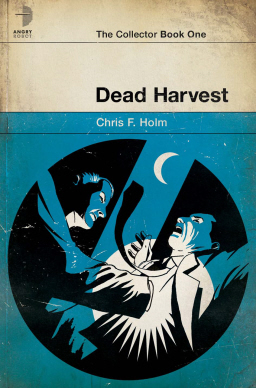
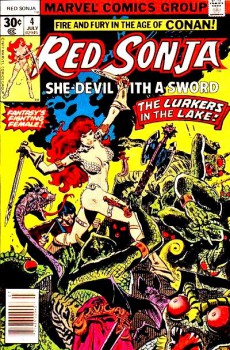
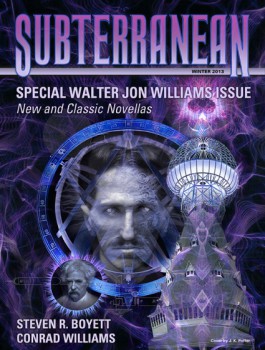
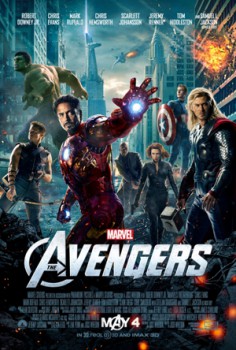 We’ve had a great fall here at Black Gate: more folks visited us than at any time in our history, and we’ve had steady increases in readership every month since June. We’ve nearly doubled our traffic since this time last year — which would be terrific, if we could just get all you folks to wipe your feet before stepping on the carpet. In any event, thanks for the support, and here’s to an even better 2013.
We’ve had a great fall here at Black Gate: more folks visited us than at any time in our history, and we’ve had steady increases in readership every month since June. We’ve nearly doubled our traffic since this time last year — which would be terrific, if we could just get all you folks to wipe your feet before stepping on the carpet. In any event, thanks for the support, and here’s to an even better 2013.